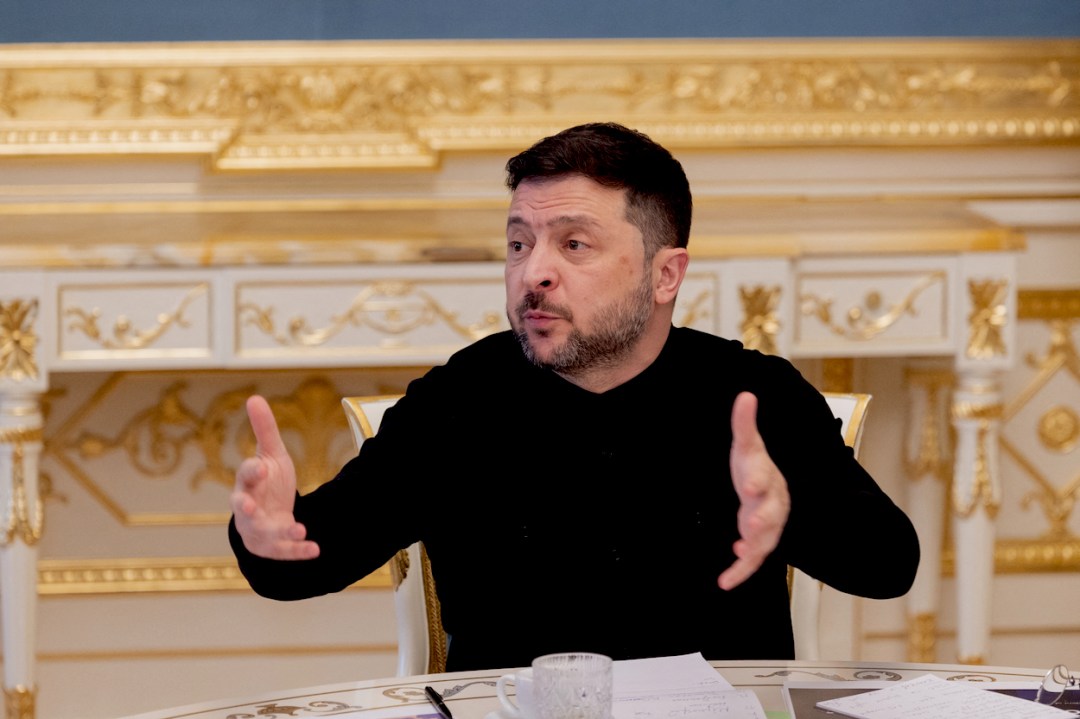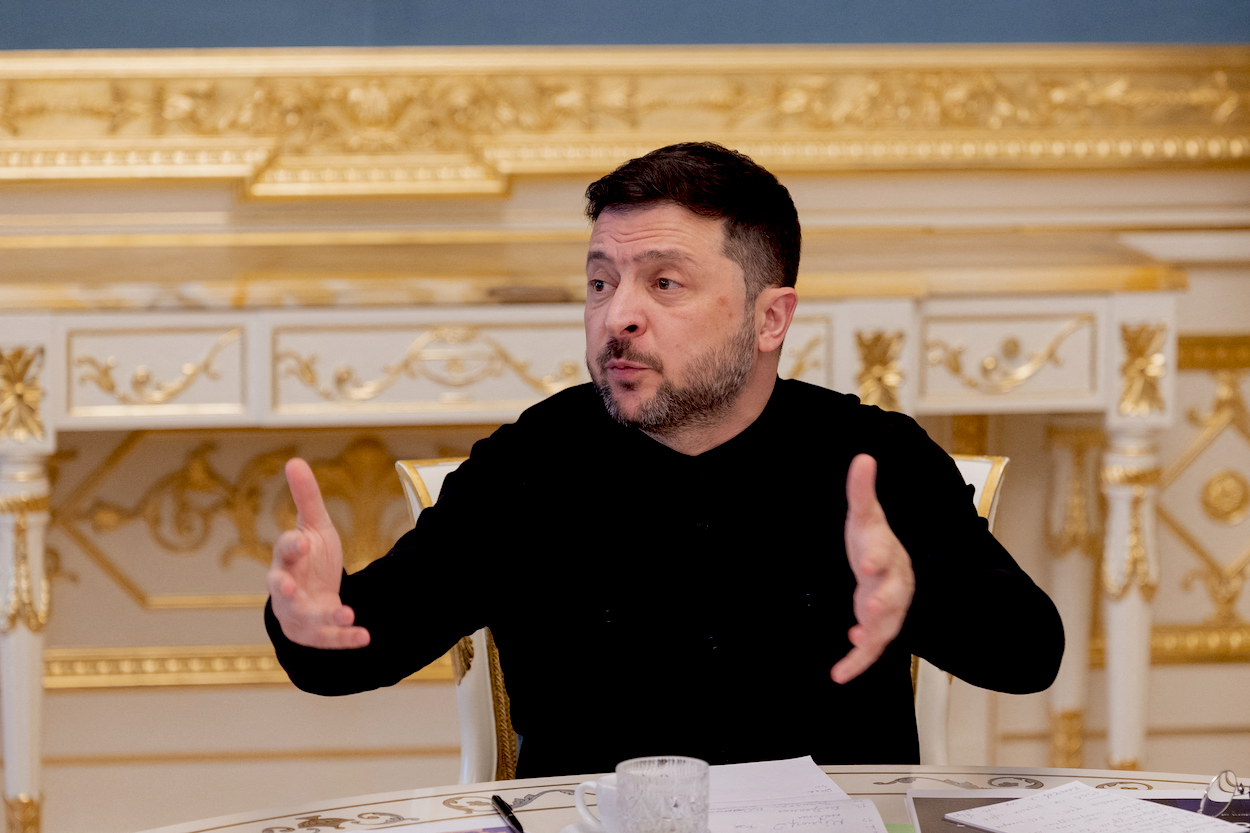Since taking office in 2019, Volodymyr Zelensky’s decisions have often been a mix of blatant populism and good intentions. Today, however, a number of his domestic policies are seen in Ukraine less as acts of genuine support for the war-weary public and more as attempts to shore up his approval ratings. This year, just as last, Zelensky has announced a round of ‘winter support’, under which every Ukrainian can receive 1,000 hryvnias – around £18 – from the state. The money can be used to pay utility bills, buy medicine or books, or be donated to the army.
The scheme was tested last December, when more than 14 million Ukrainians claimed the payment. At the time, the President’s Office argued that certain funds provided by international partners for social support could not legally be redirected to the military, and so the remaining balance was distributed to citizens instead. Despite public appeals to donate the money to buy drones and other equipment for soldiers, fewer than 5 per cent of Ukrainians did so. The vast majority used it to cover utility costs and mobile bills, which was expected given the full-scale war has tripled living costs.
Zelensky’s money giveaway continues to unsettle the public, drawing criticism for spreading limited funds thinly across everyone instead of directing meaningful support to those who genuinely need it. Among them are more than four million internally displaced Ukrainians who were forced to abandon their homes and belongings in the frontline regions. The monthly benefits they receive – 2,000 hryvnias (£36) for adults and 3,000 hryvnias (£55) for children – are miserable. With the average salary roughly £400 a month and pensions under £90, thousands of Ukrainians, particularly the elderly, are living below the breadline.
The government appears to have taken some of the criticism on board: unlike last year, Kyiv has added a one-off payment of 6,500 hryvnias (£120) for the most vulnerable groups, including orphans, displaced children and elderly people living alone. But this unprecedented generosity doesn’t end there: Zelensky also announced a scheme offering Ukrainians 1,800 miles of free travel on the state railway, a service that is already loss-making and requires nearly £300 million in budget support. Next year, all Ukrainian schoolchildren are to receive free school meals, while adults aged over 40 will be entitled to free health check-ups.
This endless distribution of cash to the entire population comes as Ukraine heads into a £15 billion budget shortfall next year. Kyiv had banked on its allies unlocking frozen Russian assets to finance a £120 billion reparations loan, but the plan has stalled after Belgium refused to back it. Since most of the frozen Russian funds are held in Belgium, Brussels fears legal and financial blowback should Moscow challenge the decision in court.
If Belgium cannot be swayed during talks, Ukraine’s allies will have to step in with their own money, given that Ukraine’s economy is nowhere near able to sustain the war alone. In 2022, a single day of fighting cost Kyiv around £100 million; today that figure is over £130 million. And as Moscow ramps up airstrikes on critical infrastructure while Russian troops continue the assault along the front line, the cost of Ukraine’s freedom will only continue to rise. Zelensky had better prepare convincing arguments for his western partners as to why they should keep funding Ukraine’s struggle while he hands money away.









Comments